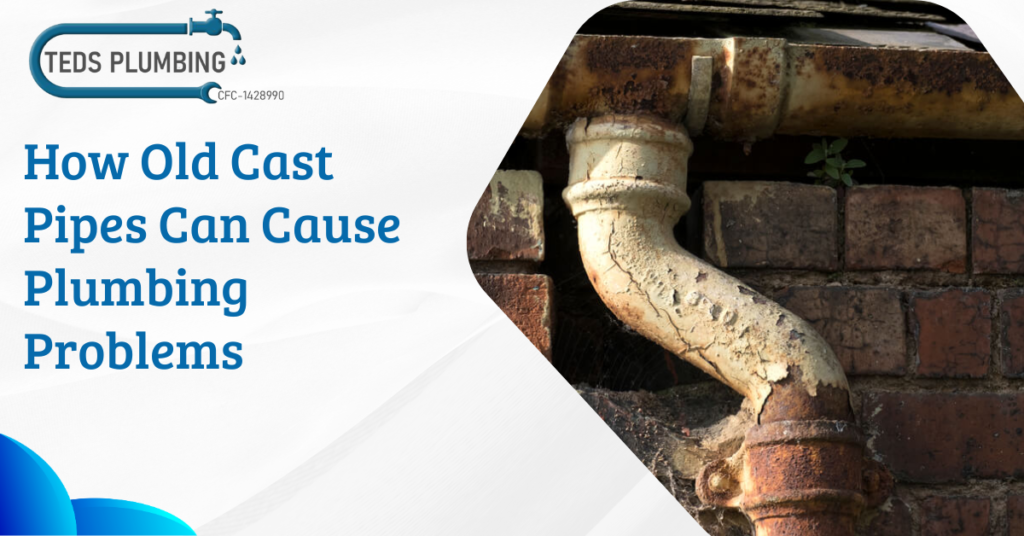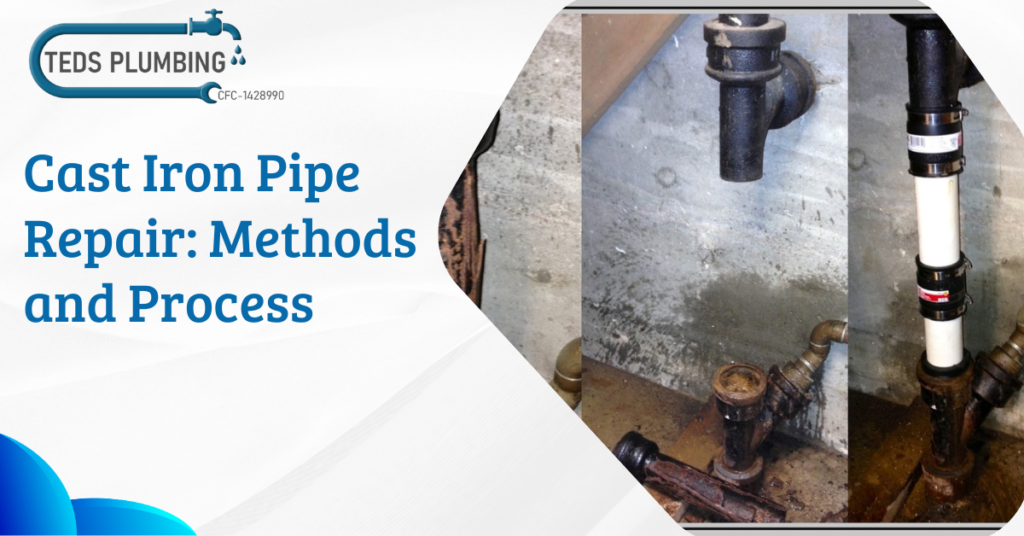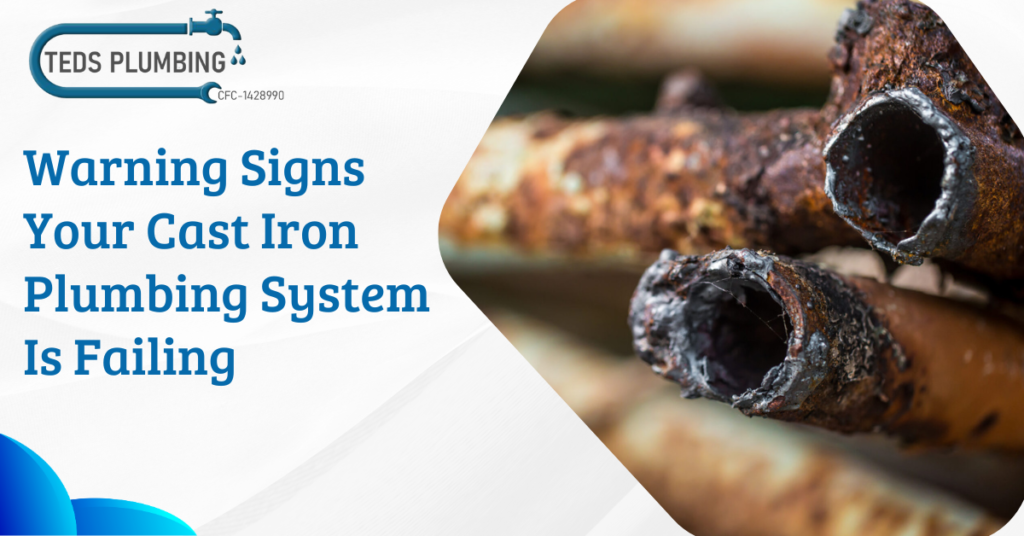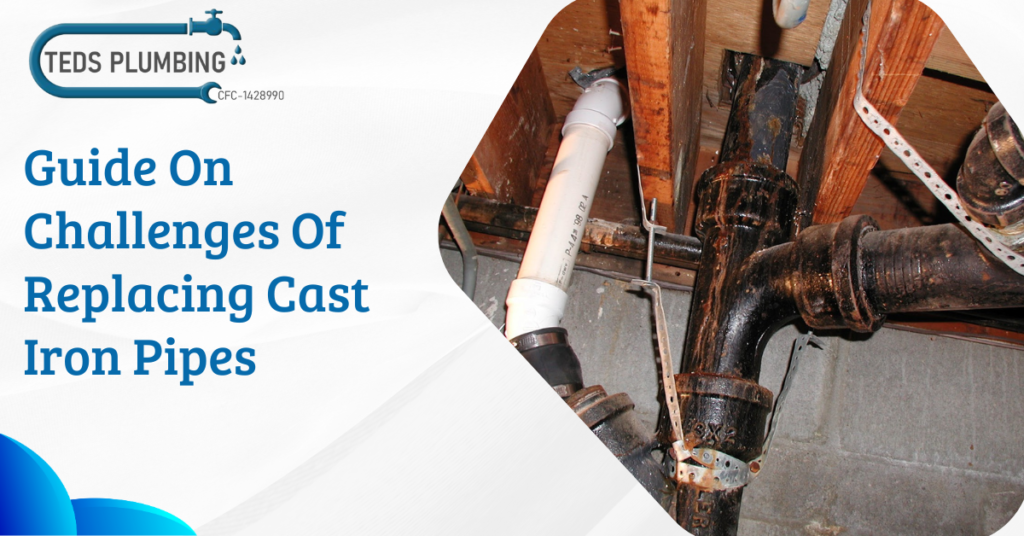In plumbing longevity is often considered a hallmark of quality. However even the sturdiest materials can succumb to the passage of time. Cast iron plumbing once heralded for its durability is no exception. As these pipes age they can become a source of numerous plumbing woes from leaks to blockages. Understanding the potential problems associated with aging cast iron pipes is essential for homeowners looking to safeguard their plumbing systems and prevent costly repairs down the line.
Why Do Old Cast Pipes Pose Plumbing Problems?
Over time, cast iron pipes can corrode, leading to leaks, blockages and even structural damage to the plumbing system. As these pipes age they become more prone to rust and deterioration, compromising their integrity and functionality.
Corrosion
When metal rusts it weakens. That’s what happens to old cast iron pipes. Over time, they rust inside making them weaker. Eventually they start to leak. It’s like when you see an old bike left outside for too long it starts to rust right? It’s the same idea with pipes.
Scaling
Inside old pipes, minerals from the water can build up over time. It’s like when you do not clean your water bottle and see stuff sticking to the sides that’s scaling. This buildup narrows the pipes like gunk stuck in a straw. When pipes get narrower water can’t flow through as easily causing clogs.
Cracks and Breaks
Imagine an old toy that you have played with for years. It gets worn out, right? Well, the same thing happens to old pipes. They become brittle which means they’re more likely to crack or break. Sometimes, the ground moving or temperature changes can cause this too.
Tree Root Intrusion
Trees are always looking for water and are pretty good at finding it even if it’s in your pipes. Tree roots can sneak in when small gaps or cracks in old pipes occur. They can block the water flow or even break the pipes as they grow.
Outdated Design
When these old pipes were put in they used different methods than we do now. Think of it like comparing an old phone to a new one the old one just is not as good so for this you will know its time to Replace Cast Iron Pipes. Old pipes might have weak spots or places where they join together that aren’t as sturdy. This can lead to leaks or other problems.
Decreased Efficiency
Have you ever tried to drink through a straw that’s too skinny? It’s hard, right? Well, old pipes can be like that, too. Sometimes they are just not wide enough to let water flow through easily. Or maybe they have weird bends or turns that slow things down. This can make your plumbing system less effective overall.
Preventive Maintenance Tips for Aging Cast Iron Pipes
When looking after your old cast iron pipes simple maintenance steps can go a long way in preventing cast iron plumbing issues. Let’s break down each tip into easy to understand details:
- Regular Inspections
It’s like giving your pipes a check up. Grab a flashlight and take a look at your pipes now and then. Watch out for any rust leaks or strange bumps. Spotting problems early means you can fix them before they get worse.
- Annual Cleaning
Think of it as giving your pipes a nice bath. Hire a pro to clean out your pipes once a year. They will scrub away all the gunk that builds up inside keeping things flowing smoothly.
- Avoid Harsh Chemicals
Imagine your pipes are sensitive they don’t like strong chemicals. Instead of using harsh drain cleaners try gentler options. They’ll get the job done without hurting your pipes.
- Monitor Water Quality
Picture your pipes as thirsty plants; they prefer clean water. Hard water, full of minerals, can hurt your pipes. Consider using a water softener to make it gentler on them.
- Proper Disposal Practices
Your pipes are like picky eaters; they only like certain things. Don’t flush anything down the toilet or sink that does not belong there. Grease wipes and other nonbiodegradable stuff can clog them up.
- Maintain Proper Slope
Imagine your pipes are like slides at a playground. They must be at the right angle. If they are not sloped properly, water can get stuck and cause trouble. Make sure they’re installed just right to keep things moving smoothly.
Insulate Pipes in Cold Climates: Your pipes can get chilly in cold weather too. Wrap them up like a cozy blanket to prevent freezing and cracking.
- Address Minor Issues Promptly
Consider small cast iron plumbing problems as little monsters. If you ignore them, they can grow into big ones. Fix leaks, drips, and funny noises as soon as you notice them. It will save you from bigger headaches later on.
Taking care of your aging cast iron pipes does not have to be daunting. You can keep your cast iron plumbing system running smoothly with regular checkups gentle cleaning and simple precautions. Remember to address any issues promptly and contact Ted’s Plumbing Company for professional services. By investing a little time and effort into maintenance now you can save yourself from bigger problems and costly repairs in the future. So keep these tips in mind and enjoy worry free plumbing for years.
FAQs
How long do cast iron pipes last?
The lifespan of cast iron pipes can vary depending on factors such as usage, environmental conditions, and maintenance practices. However, on average, cast iron pipes can last 80 to 100 years before needing replacement.
Can aging cast iron pipes be repaired?
In some cases, minor issues with aging cast iron pipes can be repaired using techniques such as patching or relining. However if the pipes are extensively corroded or damaged replacement may be the most effective solution.
What are some signs that my cast iron pipes need attention?
Signs that your cast iron pipes may require attention include frequent leaks, slow drainage, unusual noises coming from the plumbing system and visible signs of corrosion or rust on the pipes.




